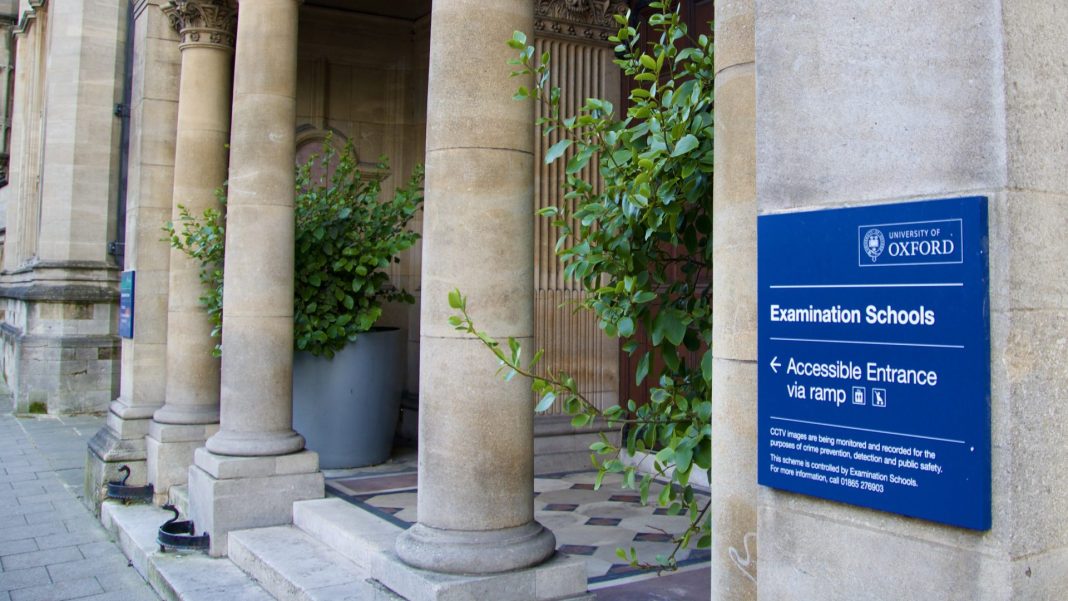Being deaf since birth, I have never been able to access language in the same way as my hearing peers. My daily life as a cochlear implant user mirrors the experience of those learning a second language, requiring ten times the effort to have only a fraction of the comprehension. This reality is why I require additional time for exams, due to the time pressures involved in contrast to writing essays at home. I was officially allocated an extra 45 minutes of time (15 minutes per hour) to account for the fact that it takes me longer to process language. Here is what happened on exam day.
I took my seat in the smaller room, which is where it all began. Initially, my computer experienced a glitch that prevented me from logging on using my regular SSO details. I tried to seek assistance from the exam proctors, yet remarkably none of them were familiar with operating the computers. In-person computer exams were introduced for the first time this year but unfortunately, no IT support was forthcoming. I managed to find an alternative login method, although it caused a 15-minute delay in accessing the system. This was already 15 minutes off my exam time.
Despite the rocky start, I persevered and completed the first two essays. In the middle of the exam, one of the proctors came up to me to offer an apology for the situation and to explain the absence of guidance on the new computer procedures. The fiasco escalated when the extra time was not implemented, resulting in my exam finishing at the same time as everyone else’s: I was locked out of my computer.
Upon realising the error, I informed the proctors about the extra 45 minutes allocated to me, leading them to contact someone else by phone for my re-entry. After about 30 minutes, they informed me that I would resume the exam at 1:15 pm and finish by 1:55 pm. Regrettably, I was misinformed by the proctor, and my exam actually concluded at 1:35 pm, leaving me with only 20 minutes to complete the final paper. I raised my concerns and was informed that nothing more could be done.
The exam proctors said that I needed to submit a mitigating circumstances notice (MCE) to the examiners. I promptly submitted the paperwork for the MCE and hoped that it would resolve the situation. However, I was warned by other students that MCEs sometimes do not offer a sufficient framework for the examiners to consider the circumstances (examiners are not always informed about adjustments and the options are limited by what work was produced on the day). Regrettably, the cautionary advice held true, and I received my exam result over the summer. It was a passing grade – not as strong as I had hoped – and falling significantly below my usual performance in class. Furthermore, I was informed that no adjustments could be made to the outcome.
I approached Former DisCam chair Theo Sergiou for his take on the issue. He explained that “In the 2 years of being co-chair and with over 200 students who approached us for help, about 50% were exam related.’’ He told me that my story was “not uncommon”, and was prolific “amongst graduates and undergraduates, and throughout colleges and departments… On a personal note, I am registered partially blind but in half of my final exams the paper was not enlarged, and the online systems could not enlarge the font. IT took up an hour of my time, and the squinting caused me to vomit in one of my exams. The mitigating circumstances form was considered without any changes to my marking.”
Whilst nobody has the deliberate intention for a situation like this to arise, my experience certainly underscores how in the hallowed halls of a longstanding institution like Oxford, accommodations for disabled students are often viewed as an afterthought. The incident was the tipping point for me, so I decided to focus on leveraging my experiences to improve Oxford’s accessibility for disabled students. With this objective in mind, I reached out to my department to inform them of the circumstances that had transpired. The situation was challenging as the responsibility did not lie solely with me or the department; instead, it fell on the University as a whole to take action to meet the needs of disabled students. Fortunately, my supervisor supported me throughout this situation and truly advocated on my behalf.
My department escalated the matter to a higher level, engaging with relevant individuals and fighting for increased investment and attention to prevent similar situations in the future for the countless other students who have accessibility requirements. They implemented alterations to the exam protocols, allowing MCEs to be considered in final exam evaluations. This revision enables examiners to review all the various assessments completed by students and make a more comprehensive judgement. Whilst it is not a miraculous fix, it is certainly a step in the right direction, and more than what I expected.
Studying at Oxford University has been a life-changing opportunity and has opened many doors for me personally. I have met so many incredible professors and students – hence why I am passionate about writing this article to raise awareness. Oxford is a formidable institution, so change will not be immediate. However, real progress can be made when there is collective action in advocating for change across all levels and areas of disability equality. As Theo rightly says, “you all can do something about it: stand by Oxford’s disabled students and fight with us.”


